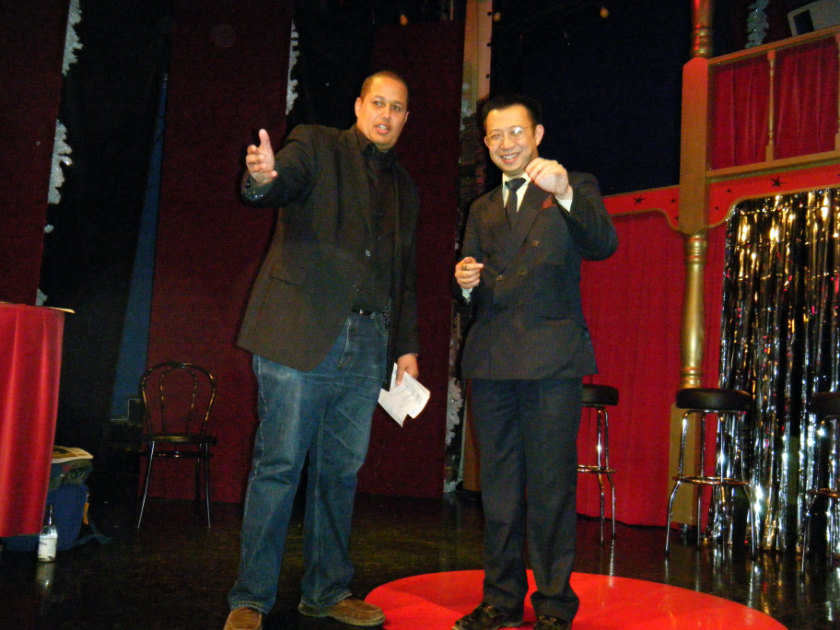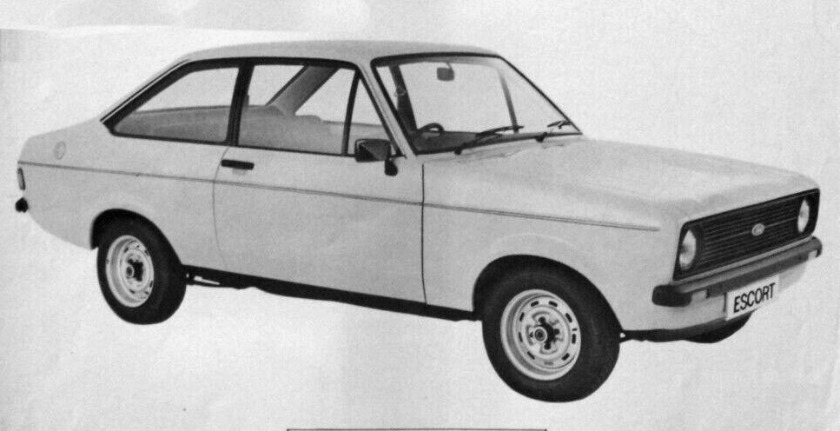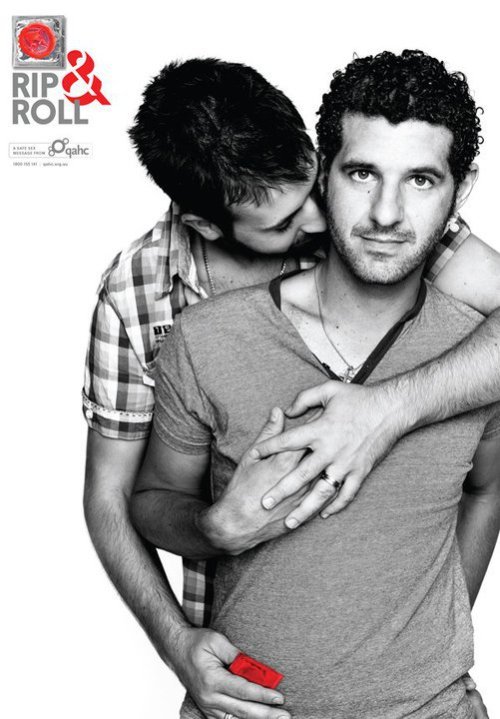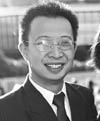I rewatched Princess of Chaos, the TV drama centred around my friend, Bevan Chuang. I’m proud to have stood by her at the time, because, well, that’s what you do for your friends.
I’m not here to revisit any of the happenings that the TV movie deals with—Bevan says it brings her closure so that is that—but to examine one scene where her character laments being Asian and being ‘invisible’. How hard we work yet we aren’t seen. The model minority. Expected to be meek and silent and put up with stuff.
Who in our community hasn’t felt this?
While the younger generations of the majority are far, far better than their forebears, the expectation of invisibility was something that’s been a double-edged sword when I look back over my life.
The expectation of invisibility was never going to sit well with me.
I revelled in being different, and I had a family who was supportive and wise enough to guide me through being different in our new home of Aotearoa New Zealand.
My father frequently said, when speaking of the banana Chinese—those who proclaim themselves yellow on the outside and white on the inside—that they can behave as white as they want, but there’ll always be people who’ll see the yellow skin and treat them differently. And in some cases, unfairly.
He had reason to believe this. My mother was underpaid by the Wellington Hospital Board for a considerable time despite her England and Wales nursing qualification. A lot of correspondence ensued—I still remember Dad typing formal letters on his Underwood 18, of which we probably still have carbons. Dad felt pressured—maybe even bullied to use today’s parlance—by a dickhead manager at his workplace.
Fortunately, even in the 1970s, good, decent, right-thinking Kiwis outnumbered the difficult ones, though the difficult ones could get away with a lot, lot more, from slant-eye gestures to telling us to go back to where we came from openly. I mean, February 6 was called New Zealand Day! Go back another generation to a great-uncle who came in the 1950s, and he recalls white kids literally throwing stones at Chinese immigrants.
So there was no way I would become a banana, and give up my culture in a quest to integrate. The parents of some of my contemporaries reasoned differently, as they had been in the country for longer, and hoped to spare their children the physical harm they endured. They discouraged their children from speaking their own language, in the hope they could achieve more.
As a St Mark’s pupil, I was at the perfect school when it came to being around international classmates, and teachers who rewarded academic excellence regardless of one’s colour. All of this bolstered my belief that being different was a good thing. I wasn’t invisible at my school. I did really well. I was dux.
It was a shock when I headed to Rongotai College as most of the white boys were all about conforming. The teachers did their best, but so much of my class, at least, wanted to replicate what they thought was normal society in the classroom, and a guy like me—Chinese, individualistic, with a sense of self—was never going to fit in. It was a no-brainer to go to Scots College when a half-scholarship was offered, and I was around the sort of supportive school environment that I had known in my primary and intermediate years, with none of the other boys keen to pigeonhole you. Everyone could be themselves. Thank goodness.
But there were always appearances from the conformist attitudes in society. As I headed to university and announced I would do law and commerce, there was an automatic assumption that the latter degree would be in accounting. I would not be visible doing accounting, in a back room doing sums. For years (indeed, until very recently) the local branch of the Fairfax Press had Asian employees but that was where they were, not in the newsroom. We wouldn’t want to offend its readers, would we?
My choice of these degrees was probably driven, subconsciously, by the desire to be visible and to give society a middle finger. I wasn’t going to be invisible. I was going to pursue the interests that I had, and to heck with societal expectations based along racial lines. I had seen my contemporaries at college do their best to conform: either put your head down or play sport. There was no other role. If you had your head up and didn’t play sport at Rongotai, there was something wrong with you. Maybe you were a ‘faggot’ or ‘poofter’ or some other slur that was bandied about, I dare say by boys who had uncertainties about their own sexuality and believed homophobia helped them.
I loved design. I loved cars. Nothing was going to change that. So I pursued a design career whilst doing my degrees. I could see how law, marketing and management would play a role in what I wanted to do in life. When I launched Lucire, it was “against type” on so many fronts. I was doing it online, that was new. I was Chinese, and a cis het guy. And it was a very public role: as publisher I would attend fashion shows, doing my job. In the early days, I would be the only Chinese person amongst the press.
And I courted colleagues in the press, because I was offering something new. That was also intentional: to blaze a trail for anyone like me, a Chinese New Zealander in the creative field who dared to do something different. I wasn’t the first, of course: Raybon Kan comes to mind (as a fellow St Mark’s dux) with his television reviews in 1990 that showed up almost all who had gone before with his undeniable wit; and Lynda Chanwai-Earle whose poetry was getting very noticed around this time. Clearly we needed more of us in these ranks if we were going to make any impact and have people rethink just who we were and just what we were capable of. And it wasn’t in the accounts’ department, or being a market gardener, serving you at a grocery store or takeaway, as noble as those professions also are. I have family in all those professions. But I was out on a quest to break the conformity that Aotearoa clung to—and that drove everything from typeface design to taking Lucire into print around the world and running for mayor of Wellington. It might not have been the primary motive, but it was always there, lingering.
This career shaped me, made me less boring as an individual, and probably taught me what to value in a partner, too. And thank goodness I found someone who also isn’t a conformist.
When we first met, Amanda did ask me why I had so many friends from the LGBTQIA+ community. I hadn’t really realized it, but on reflection, the answer was pretty simple: they, too, had to fight conformist attitudes, to find their happy places. No wonder I got along with so many. All my friends had stood out one way or another, whether because of their interests, their sexuality, how they liked to be identified, their race, their way of thinking, or something else. These are the people who shape the world, advance it, and make it interesting. They—we—weren’t going to be pigeonholed.

With fellow nonconformist Stefan Engeseth in Stockholm, 2010





There’s a flip side: those conformists are as invisible as slices of white bread in a bag. And by the time they realize it, it’s too late to stand out or do things differently. Of course, some of them hate the nonconformists – they envy them their courage, among other things. But there are those who just fade to invisibility and die with the “injustice” of having played by the rules for decades, only to be “rewarded” by being cast aside and ignored. The only ultimate equalizer is death. But learning to intentionally create a life that YOU love living is a priceless thing, in the meantime.
Beautifully put, Holly, thank you. It does take courage to walk outside what society expects of you, and since we all have a limited time on earth, to make a life where you love what you do.